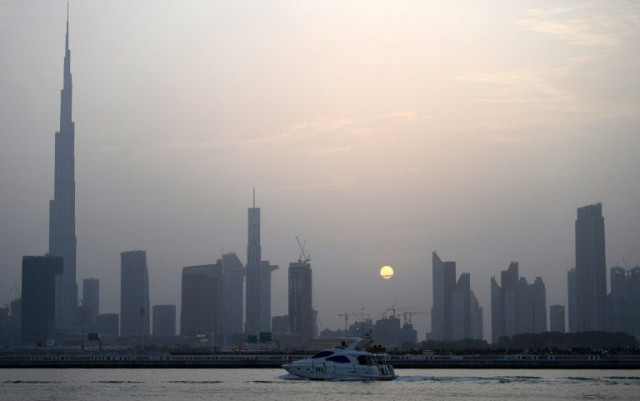Dubai seeks investment to bolster flagging economy
Emirate's vital property, tourism and trade sectors have weakened in recent years

Emirate's vital property, tourism and trade sectors have weakened in recent years. PHOTO: ONLINE
Despite boasting the most diverse economy in the Gulf region, the emirate's vital property, tourism and trade sectors have weakened in recent years.
Real estate deals plunged 21.5% to $60.7 billion in 2018, according to government data, while the number of tourists visiting Dubai remained stagnant at around 16 million in the past two years.
"Dubai's economic growth has been lacklustre... following a weak real estate market and subdued consumer spending," M R Raghu, Head of Research at Kuwait Financial Centre (Markaz), told AFP.
The emirate's economy grew by just 1.94% last year - almost half of its 2017 growth and just a notch above the 1.9% in 2010, when Dubai was still recovering from a recession due to the global financial crisis and its own debt problems.
But Raed Safadi, Chief Economic Advisor to Dubai Economy, the government agency responsible for promoting development, downplayed reports about the slowdown.
"We are still growing. Yes, it is not at 4.5% - the average between 2012 and 2016 - but given all the conditions around the world, it is healthy," Safadi told AFP.
He expects growth to pick up to 2.1% in 2019 and rebound to as high as 3.8% next year.
This prediction relies heavily on the Expo 2020 global trade fair that Dubai hopes will deliver an economic windfall and some 300,000 new jobs.
Safadi said Expo 2020 is expected to add some $35 billion to the economy over the subsequent decade.
But with the region's most open market, Dubai is exposed to global trade tensions, regional slowdown and the economic downturn in Iran under tough US sanctions, according to the London-based Capital Economics.
"All of this will weigh on Dubai's key logistics, tourism and manufacturing sectors," said James Swanston, an economist at Capital Economics.
To preserve Dubai's image as an economic hub, the city-state has implemented a raft of incentives.



















COMMENTS
Comments are moderated and generally will be posted if they are on-topic and not abusive.
For more information, please see our Comments FAQ